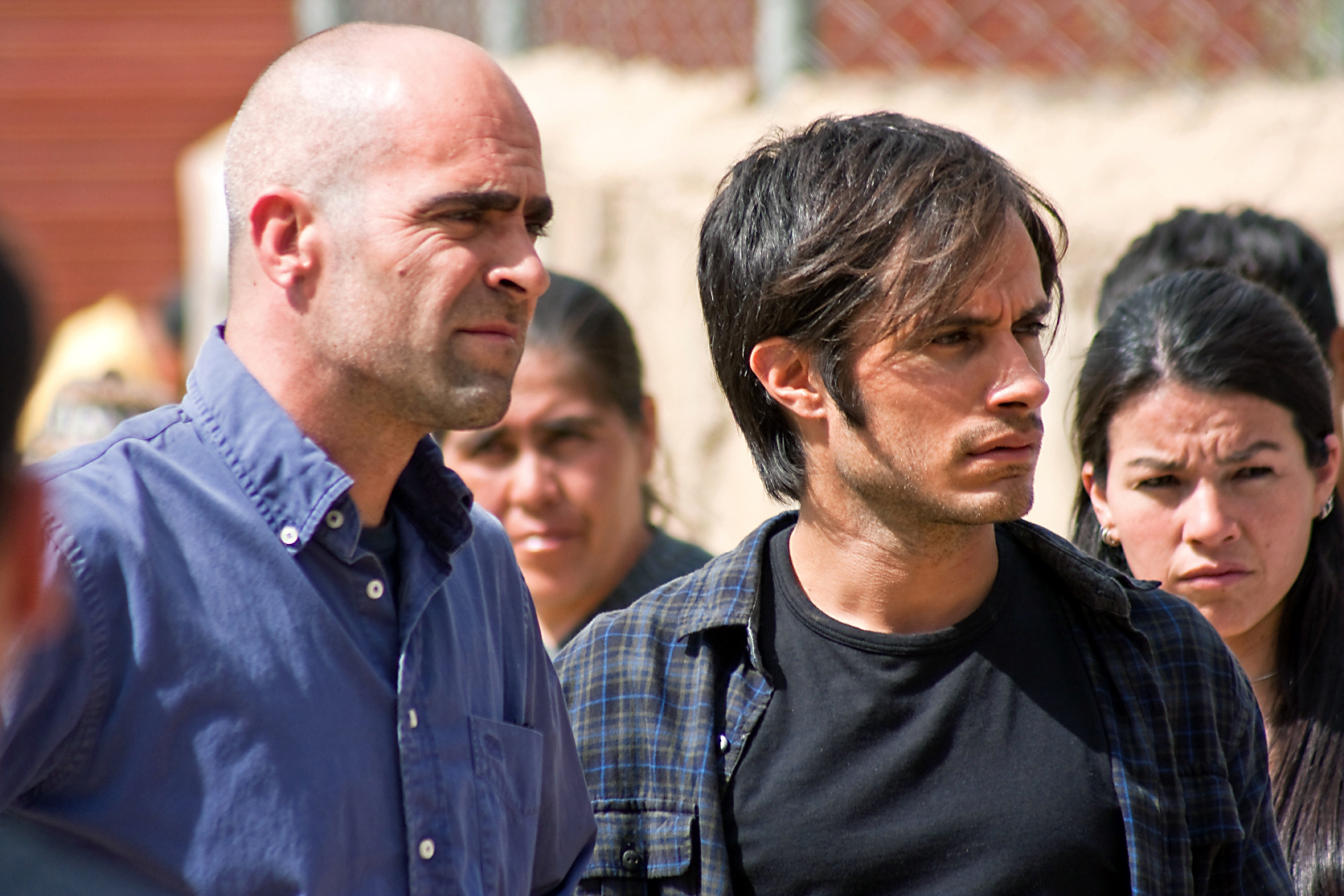History, fiction and reality intertwine in “Even the Rain,” which follows a Spanish film production company as they shoot a 16th century New World epic in Bolivia. Filming is threatened when plans to privatize Cochabamba’s water supply cause the city’s population, including hundreds of the film’s extras, to rise in protest.
The director and producer’s worst nightmare comes true when the film’s local Bolivian lead, Daniel, becomes the leader of the revolt, plunging production into even further chaos.
Gael GarcÃa Bernal plays Sebastián, the film’s director. Spanish actor LuÃs Tosar plays the film’s producer Costa, a gloriously despicable man with his eyes firmly on the prize. Costa is delighted to slash production costs by paying indigenous locals just $2 a day to work as extras.
When reminded that the extras are Quechua peoples and not TaÃnos, as historical authenticity would have them be, he proclaims, “They’re all the same.”
The production company exploits the locals just as the Spanish colonialists did 500 years before them.
Ironically, Sebastián’s film celebrates two dissident figures in Spanish imperialism who denounced slavery and called for the empowerment of Latin American subjects. While the actors are busy condemning tyranny on-screen, off-screen they are unwittingly helping to perpetuate the oppressive status quo.
But more significantly, the film concentrates on the theme of indigenous exploitation by colonialists as much as by multinational corporations and government. The proposed water privatization of the city, which would have increased water prices by 300 percent for a population already struggling to survive, is not fictional.
The film is based on true events: The Cochabamba water riots of 2000, which left more than 100 people injured, eventually managed to keep the water supply public. Parallels between the struggles of the indigenous against first imperialism seeking to take their gold and then companies seeking to privatize their water become clear.
One chilling scene, in which the film crew meets Cochabamba’s mayor for champagne in the town hall while violent protests take place around the building, shows the government’s utter disrespect toward its population. It becomes clear that the people are treated by the authorities just as they were centuries before, under colonial rule.
Understandably, Sebastián and Costa are increasingly worried as their leading man becomes deeply involved in the protests, which are violently repressed by the government. After Daniel is arrested, Sebastián and Costa bribe the police to temporarily let the actor out of prison to film a major scene.
This culminates in the film’s most striking scene, as police come to the set to re-arrest Daniel. In tribal costume, hundreds of extras fight against police to protect their representative in a clash that transcends century and setting.
The film’s strength lies in its total avoidance of self-righteousness. While it would have been easy to slide into a documentary-style exposé of corporations’ and governments’ exploitation of indigenous peoples, “Even the Rain” retains a watchable balance between depicting the water crisis and subplots within the cast and crew.
Tensions arising within the likeable film crew make for compelling character development. Surprisingly, it is Costa who feels compelled to help the protesters, while earnest-faced Bernal is unusually but successfully cast as the morally reckless director, determined to finish his film regardless of the social cost.
For a film with such a pressing social message, “Even the Rain” lacks urgency. Though the film is eye-opening, director IcÃar BollaÃn seems unsure how hard to push the political agenda. The ambiguous ending, which doesn’t even show the outcome of the riots, leaves us feeling a little lost. “Even the Rain”, though entertaining, loses dynamic in its indecision.
E-mail Mosler at emosler@media.ucla.edu.
